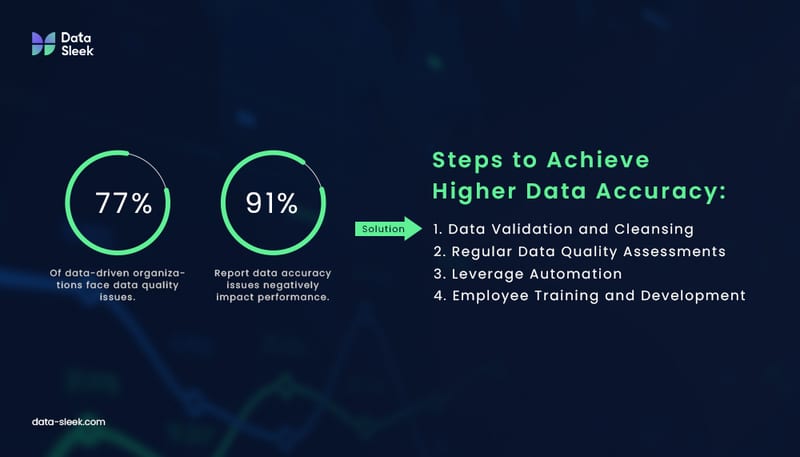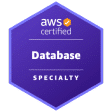The Olympics is home to the greatest athletes ever walking the planet. These athletes dedicate their lives to excellence through laser-focused training and a belief in continuous improvement. This survival-of-the-fittest mentality is no stranger to the business arena. Surprisingly, neither are the training techniques.
Like competitive athletes, organizations that strive for excellence inevitably land at the top. Studies show that data-driven strategies for organizations are 23 times more likely to outperform their competitors. Dedication to continuous improvement mirrors that of a star athlete: developing skills like quick thinking, better performance, and pushing boundaries to achieve greater outcomes.
Shifting to a winning mindset starts with smaller, manageable steps. Building a data-driven culture also involves building a culture of discipline. After all, no one achieved gold by taking one step and calling it quits.
In order to achieve even your loftiest business objectives, we took a deep-dive into our Data-Driven Strategy Playbook. These 3 approaches to data-driven decision making that your organization can add to your routine and see award-winning results.
The Routine of A High-Performing Data-Driven Organization
Top-performing businesses achieve their goals by implementing uncommon routines. If you want to know how market leaders reached the top, look at the small choices that the organization routinely made.
Developing a routine of continuous business improvement isn’t just an admirable choice—it’s essential to achieve any level of greatness. Routines are responsible for delivering better customer experiences, making better data-driven decisions, and maintaining a competitive advantage.
Here are some key parts of a winning routine:
- Not Getting Comfortable: Continuous improvement requires avoiding complacency. Organizations must always strive for better performance and innovation. “Complacency is the enemy of greatness,” according to business management expert Jim Collins.
- Strategic Goal Setting: Companies that set high-reaching goals are 90% more likely to achieve them. Like athletes who set large, daunting goals and break them down into smaller, manageable objectives, businesses should do the same to stay focused and motivated.
- Tracking Performance and Setting Personal Benchmarks: Regularly assessing performance metrics helps identify strengths and weaknesses, guiding targeted improvements.
- Working as a Team and Fostering a Data-Driven Culture: Collaboration and a shared commitment to data-driven decision-making are crucial for achieving collective success.
- Learning the Art of Recovery: Just as athletes prioritize recovery to sustain performance, businesses must take calculated risks to stretch beyond their limits and achieve measurable changes in the market. However, these risks can come at a high cost. Only 51% of companies have a recovery plan, is yours one of them?
Faster, Higher, Stronger: Your Data-Driven Strategies

The Olympics brings together the best athletes from around the world to showcase their dedication to excellence and relentless pursuit of improvement. What do these athletes have in common (besides the obvious)? A mindset poignantly described by the Olympic motto as “Faster, Higher, Stronger.”
Embracing this mindset can transform your data-driven organization from ordinary to extraordinary. By incorporating the principles of “Faster, Higher, Stronger”, your organization can create a culture of continuous improvement, driving sustained success and competitiveness in the ever-evolving business landscape.
Consider the facts: Creating a culture of continuous improvement has been shown to increase customer satisfaction by 20% and a financial increase of 35%.

Faster: Enhancing Data Efficiency For Data-Driven Decision Making
For those in the Data Management space, going faster means enhancing data efficiency. A faster system drives better results while reducing downtime and outages. In recent studies, data outages cost SMBs an average of $10,000 annually. Enterprise data-driven companies endure costs well over $300,000.
Key factors for using data analytics to inform business strategies include speed and data governance. Data governance ensures that data is accurate, consistent, and secure.
Focusing on both factors ensures that your insights are timely, precise, and actionable for faster decision-making. According to MicroStrategy, companies that invest in data analytics make decisions five times faster, with more than half reporting better financial outcomes as a result.
Here are some ways to adopt a faster approach to your data:
- Implement Advanced Data Processing Technologies: Use in-memory computing, real-time analytics, and distributed processing to significantly reduce data processing time.
- Streamline Workflows to Reduce Bottlenecks: Automate repetitive tasks and use data integration to eliminate data silos, ensuring smooth and efficient workflows.
- Optimize Data Storage Solutions: Utilize scalable cloud storage options and high-performance databases. Cloud storage provides flexibility and scalability, allowing your storage capacity to grow with your business needs without significant upfront investments.
- Implement Data Caching Strategies: Use caching mechanisms to temporarily store frequently accessed data in high-speed memory, reducing the time it takes to retrieve data from primary storage.
These data-driven approaches can enhance data efficiency and enable business leaders to make more informed and timely decisions. Implement at least one of these suggestions into your routine to achieve peak performance. Going “faster” boost productivity and positions your organization to respond swiftly to market changes and customer needs.

Higher: Achieving Data Accuracy with a Data-Driven Approach
Using data for decision-making relies on its accuracy. High standards of accuracy require systems that continuously check and eliminate errors. Companies that have poor data quality or lack data literacy struggle to leverage data to its full potential. Great Expectations revealed that 77% of data-driven organizations have data quality issues. A staggering 91% of respondents report that issues with data accuracy are negatively impacting their company’s performance.
Data accuracy, of course, is a critical element to data-driven decision-making. A company can’t expect to have sound business intelligence working off bad data.
Here are some ways to achieve higher data accuracy:
- Data Validation and Cleansing: Regular audits ensure data accuracy and clear data flows, maintaining the integrity of your systems. Implementing rigorous validation and cleansing protocols can detect and correct errors early, preventing inaccurate data from affecting your business operations.
- Conduct Regular Data Quality Assessments: Perform comprehensive data quality assessments periodically to identify and address issues. These assessments can help uncover hidden problems and ensure that your data remains accurate over time.
- Leverage Automation to Minimize Human Error: Although machine learning (ML) and artificial intelligence (AI) are still evolving, they are crucial for future agility. Use historical and environmental data to stay competitive.
- Invest in Employee Training and Development: Building a data-driven culture is also a key factor in maintaining data quality. Data professionals believe poor data quality comes from lack of documentation (31%), lack of tools (27%), and communication issues (22%). Consider the work environment as well—investing in employees can reduce fatigue and burnout while enhancing performance.
Implementing a “higher” data-driven strategy in your organization includes raising the standards on quality. Start by implementing these steps within your organization to drive better and more accurate data-driven decisions. Embracing a higher standard of accuracy not only strengthens the quality of your data, but also builds trust within your organization and with your clients.

Stronger: Building Robust Data Systems with a Data-Driven Approach
Building strong, resilient data systems involves diligent effort and robust infrastructure. Data is a core asset for your business, and like a strong core in physical training, your data needs robust systems.
A strong data-driven approach involves handling large volumes of data—often referred to as “big data”—and ensuring that data is reliable, secure, and readily available. A strong data-driven business strategy supports daily operations and long-term success.
Robust systems are an essential part of any data-driven business. An estimated 96% with a strong data management strategy are able to completely resume operations should they endure a data catastrophe.
Here’s how to build strong data systems:
- Invest in Scalable Data Infrastructure: Scalable storage solutions, high-performance computing resources, and reliable data integration tools are essential for data health. Invest in systems that grow with your business.
- Ensure Data Security and Compliance: Protect your data against breaches with encryption, access controls, and regular security audits. Implementing strong security measures ensures that sensitive information remains confidential and compliant with industry regulations, reducing the risk of data breaches and associated penalties.
- Safeguard Against Human Error: Nearly 3 in 4 breaches involved a human element such as phishing or actors. Building a data culture is a critical element to any data-driven strategy. More data usually means more hands managing data and an increase in the likelihood a data catastrophe will occur. Implement training programs and include safety in addition to data analysis techniques to maintain a strong business environment.
- Build Resilient Systems: Implement disaster recovery plans, backup solutions, and redundancy measures to ensure data availability during disruptions. Prepare for the unexpected to keep your business in the race.
- Continuously Evaluate and Upgrade Tools and Technologies: The data management landscape is constantly evolving. Stay competitive by continuously evaluating and upgrading your management tools. Choose companies with robust support options to maximize your investment post-implementation.
- Adopt Cloud-Based Solutions: Cloud-based solutions offer flexibility, scalability, and cost-effectiveness. By migrating to the cloud, you can reduce the burden of maintaining physical infrastructure while benefiting from the latest technologies and security measures provided by cloud service providers.
Data-driven businesses that build strength within their operations position themselves for better business outcomes. Embracing a stronger approach enhances reliability, safeguards your organization’s future, and enables you to face challenges with confidence.

Grabbing the Gold Using Continuous Improvement and Data Analysis
Even the best athletes rely on trainers to guide them. Likewise, working with data management professionals enables your organization to maximize the value of your data by giving you the tools and expertise you need to compete at the highest level.
The ability to adapt and innovate is critical. Data-driven organizations are better positioned to respond to market trends, optimize operations, and enhance customer experiences. Just as athletes continually refine their processes and strategies to compete, data-driven businesses must strive for “faster, higher, stronger” approaches to maintain a competitive edge.
Here’s how your data-driven organization can grab the gold and outrank the competition:
Leverage Expertise and Best Practices:
Collaborate with data professionals who can provide insights, best practices, and advanced strategies tailored to your business needs. This collaboration ensures you’re always at the forefront of data management innovations.
Implement Advanced Analytics:
Utilize predictive analytics, machine learning, and AI to gain deeper insights into your data. These technologies can help identify trends, forecast future outcomes, and make data-driven decisions that give you a competitive edge.
Foster a Culture of Continuous Learning:
Encourage a culture of continuous learning and improvement within your organization. Provide ongoing training and development opportunities for your employees to keep their skills sharp and up-to-date with the latest data management practices.
Adopt Agile Methodologies:
Implement agile methodologies to enhance flexibility and responsiveness. Agile practices allow your organization to quickly adapt to changing market conditions and customer needs, ensuring you stay ahead of the competition.
Utilize Comprehensive Support Services:
Partner with data management providers that offer comprehensive support services. This ensures you have access to expert assistance, troubleshooting, and guidance whenever you need it, maximizing the value of your data management investments.
Emphasize Data-Driven Decision Making:
Make data-driven decision-making a core part of your organizational strategy. Use data insights to guide strategic planning, operational improvements, and customer engagement initiatives, ensuring every decision is backed by accurate and relevant data.
Showcase Success Stories:
Highlight case studies and success stories that demonstrate the effectiveness of a data-driven approach. Sharing tangible results can inspire confidence and illustrate the real-world impact of your strategies. Need some inspiration? Check out a few of our own success stories.
Engage with Industry Thought Leaders:
Participate in industry events, webinars, and forums to stay connected with thought leaders and emerging trends. Engaging with the broader data management community can provide fresh insights and innovative ideas.

Behind Every Star Is A Great Coach, We can Help!
To maximize the benefits of data-driven routines, make the decision to implement changes and stick to them to build your data muscles. Like professional athletes, you don’t have to go the journey alone. Behind every medalist are trainers that have guided and helped along the way. An expert guide can help you analyze data systematically and implement incremental changes that lead your company to sustainable, long-term growth.
At Data-Sleek, our experts have the tools and experience to help your team go faster, higher, and stronger. Learn more about how we can partner together to help your organization develop a winning data-driven business strategy that works for you. Schedule a free consultation today!







